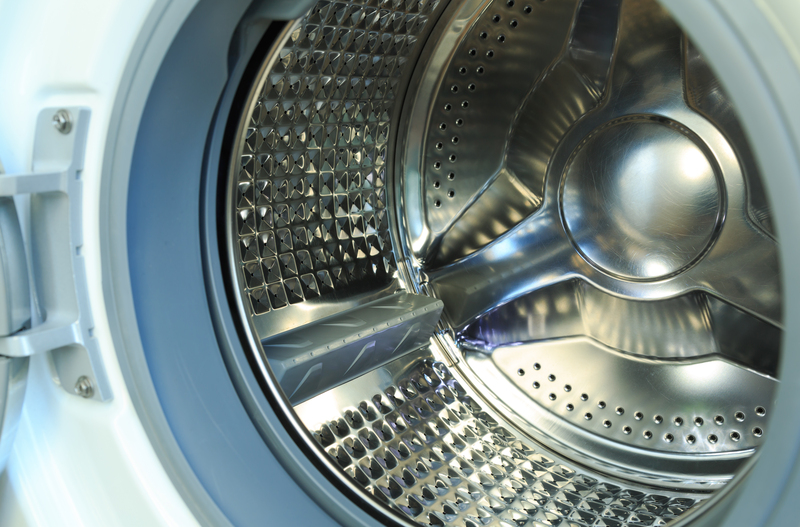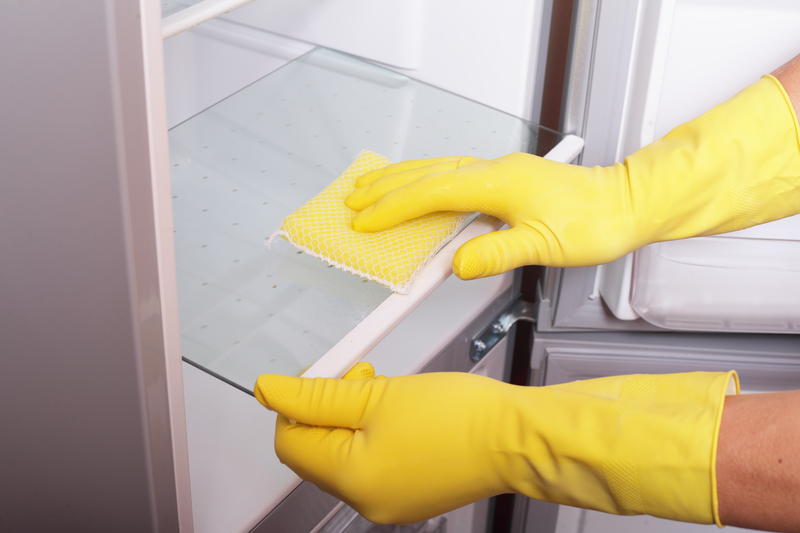Enhance Your Jewelry's Luster with Proper Cleaning
Posted on 04/09/2025
Enhance Your Jewelry's Luster with Proper Cleaning: Expert Guide
Jewelry has always been more than an accessory; it's an expression of style, sentiment, and legacy. Whether it's a sparkling diamond engagement ring, a vintage necklace, or a cherished gold bracelet, every piece of jewelry deserves care to maintain its brilliance. Proper cleaning is the key to revive and protect your jewelry's gloss. In this comprehensive article, discover how to enhance your jewelry's luster at home, keep heirlooms shining, and preserve their timeless beauty for years to come.
Why Jewelry Loses Its Luster
Over time, jewelry can appear dull, tarnished, or lackluster due to everyday exposure to dust, sweat, oils, lotions, and other environmental factors. These culprits form a film on your beloved items, clouding their once-brilliant shimmer. With regular and proper jewelry cleaning, you can remove this build-up and restore your jewelry's natural radiance.

The Importance of Cleaning Jewelry Correctly
Many people underestimate the importance of cleaning jewelry properly. Improper cleaning techniques or the use of harsh chemicals can actually harm your valuable accessories by scratching, pitting, or wearing away finishes. Ensuring the longevity and shine of your pieces depends on gentle, informed cleaning methods tailored to the metal and gemstone type.
Key Reasons to Clean Your Jewelry
- Maintain Appearance: Keeps your jewelry looking as stunning as the day you received it.
- Preserve Value: Well-maintained jewelry retains its value and beauty over time.
- Prevent Damage: Removes harmful residues that can weaken clasps, prongs, or bead strings.
- Promote Hygiene: Eliminates unseen bacteria and allergens that can cause irritation or infection.
Understanding Different Jewelry Types and Materials
Before you embark on jewelry cleaning, it's important to know what kind of metals and gemstones you are dealing with. The cleaning method may vary widely between gold, silver, platinum, and costume jewelry. Similarly, gemstones such as diamonds, emeralds, pearls, or opals require specific attention to maintain their sparkle without causing harm.
Common Jewelry Materials
- Gold: Durable and popular, but can get scratched by harsh abrasives.
- Silver: Prone to tarnishing, requires regular care and proper storage.
- Platinum: Strong but can lose its shine with daily wear.
- Gemstones: Diamonds are hardy, but others like opals and pearls are delicate.
- Costume Jewelry: Often finished with fragile coatings that need gentle cleaning.
How to Enhance Your Jewelry's Shine: Step-by-Step Cleaning Guide
Let's break down the best practices for boosting your jewelry's luster and keeping each precious piece looking radiant.
Gather Your Supplies
- Soft-bristle toothbrush
- Mild dish soap
- Lukewarm water
- Microfiber or lint-free cloth
- Bowl
- Jewelry polishing cloth (optional, for silver or gold)
General Cleaning Steps for Most Gemstone and Metal Jewelry
-
Prepare the Cleaning Solution:
Mix a few drops of mild dish soap with lukewarm water in a bowl. Avoid using hot water, which can cause delicate stones to crack or loosen from their settings. -
Soak the Jewelry:
Place your jewelry into the solution and let it soak for 10-15 minutes. This helps loosen any dirt, oils, or residue. -
Brush Gently:
Use a soft-bristled toothbrush to gently scrub your jewelry, paying attention to crevices where grime can build up. -
Rinse and Dry:
Rinse the jewelry thoroughly under lukewarm running water. Be cautious not to wash small items directly over the drain.
Use a soft, lint-free cloth to dry your pieces and restore their shine.
Special Care for Delicate Gemstones and Pearls
- Pearls: Wipe gently with a damp, soft cloth. Avoid soaking as water can break down the thread and damage the nacre.
- Opals: Clean using a barely damp cloth. Never use harsh chemicals or ultrasonic cleaners.
- Emeralds: Avoid ultrasonic cleaners and extreme temperature changes, which can fracture stones.
For pieces with intricate settings or highly valuable gems, consider professional cleaning to enhance jewelry's shine safely.
How Often Should You Clean Your Jewelry?
Establishing a regular cleaning routine is crucial for keeping your jewelry at its best. Here's a guide to recommended cleaning frequency:
- Frequently worn items (like engagement rings): Clean every 1-2 weeks.
- Occasionally worn pieces: Clean every few months.
- Delicate heirlooms: Clean only when visibly soiled or per professional advice.
*Pro Tip: Always inspect settings and mountings before and after cleaning to ensure stones are secure.
The Do's and Don'ts of Jewelry Cleaning
Best Practices for Maximum Luster
- Do use mild soap and water for most types of jewelry.
- Do dry with a soft, lint-free cloth immediately after cleaning.
- Do store your cleaned jewelry in a dry, air-tight container to prevent tarnishing.
- Do have valuable or antique jewelry professionally inspected and cleaned annually.
Common Mistakes to Avoid
- Don't use household cleaners like bleach or chlorine; they can damage metals and stones.
- Don't scrub aggressively with hard brushes or abrasive powders.
- Don't use ultrasonic cleaners for pearls, opals, emeralds, or antique pieces.
- Don't neglect to rinse thoroughly, as soapy residue can diminish the shine.
Homemade and Natural Jewelry Cleaning Methods
For those who love natural or DIY solutions, several household products can safely clean jewelry and amplify its brilliance. Here are some effective natural cleaners:
- Baking Soda Paste: For silver jewelry, mix baking soda and water into a paste, apply gently with a cloth, rinse, and dry. Avoid using this method on gold or gemstones.
- White Vinegar and Baking Soda: Soak tarnished silver in a solution of 1/2 cup white vinegar and 2 tbsp baking soda for a couple of hours. Rinse well and dry.
- Beer Polish: Polish gold jewelry (no gemstones) with a few drops of beer on a soft cloth, then wipe clean with another dry cloth.
Note: Always test any homemade solution on a small, inconspicuous area first to ensure it does not cause damage.
Storing Clean Jewelry for Long-Lasting Luster
Proper storage is as vital as proper cleaning in enhancing your jewelry's luster. Even after cleaning, exposure to air, moisture, and certain fabrics can cause tarnish or scratches. Follow these tips for storing your sparkling treasures:
- Store in Separate Compartments: Keeps necklaces, rings, and bracelets from scratching each other.
- Use Anti-Tarnish Strips: Particularly for silver jewelry, place anti-tarnish paper in your jewelry box.
- Avoid Humidity: Too much moisture encourages tarnishing. Store jewelry in a dry environment.
- Soft Pouches or Cloths: Wrap delicate items to cushion them from contact with harder metals or gemstones.
Professional Jewelry Cleaning: When and Why
Some pieces--like intricately designed engagement rings, vintage heirlooms, or luxury watches--are best left to professionals for cleaning and maintenance. Professional jewelers use specialized tools and solutions, such as ultrasonic baths and steam cleaners, to revitalize jewelry's luster without risk of harm. It's ideal to have such pieces checked and cleaned by an expert at least once a year.
Signs You Should Seek Professional Cleaning
- Persistent tarnish or debris that won't come off with home cleaning
- Loose, missing, or rattling stones/prongs
- Complex pieces with intricate filigree or multiple gemstones
- Antique or high-value items with delicate settings
Common Myths about Jewelry Cleaning
Many people still believe that common household substances--like toothpaste or baking soda on all metals--are safe for cleaning. In truth, some of these can scratch surfaces or erode delicate settings. Let's debunk some widespread misconceptions:
- Myth: Toothpaste is safe for all jewelry.
Fact: Toothpaste contains abrasives that can scratch metals and stones. - Myth: All jewelry can be cleaned in the same way.
Fact: Every material and gemstone has unique care requirements. - Myth: Cleaning jewelry too often is damaging.
Fact: Gentle, regular cleaning actually prevents build-up and keeps settings secure.

Frequently Asked Questions about Jewelry Luster and Maintenance
Can I clean my jewelry with dish soap?
Yes, mild dish soap is one of the safest and most effective solutions for cleaning most jewelry types. Avoid harsh detergents with added chemicals or abrasives.
How do I clean my jewelry without water?
For delicate pieces such as pearls or opals, you can use a soft, barely damp cloth. Specialized jewelry cleaning cloths are excellent for a quick, waterless shine boost.
Is ultrasonic cleaning safe for all jewelry?
No, ultrasonic cleaners are not recommended for soft stones, pearls, emeralds, opals, or antique pieces. They are best used for hard stones like diamonds in sturdy settings.
How can I prevent my jewelry from tarnishing?
Store jewelry in air-tight containers with anti-tarnish strips and avoid excess moisture. Regular cleaning, even with a dry polishing cloth, can delay tarnishing.
Conclusion: Maintain Your Jewelry's Timeless Brilliance
Proper jewelry cleaning enhances your jewelry's luster, extends its life, and keeps every cherished piece glowing for generations. By understanding the materials, using gentle techniques, and establishing a regular care routine, you can restore and protect your jewelry's brilliance. Whether you are caring for a family heirloom or your favorite everyday pieces, cleaning jewelry the right way preserves its beauty and value for years to come.
Start today--give your treasured gems and metals the TLC they deserve, and watch them dazzle anew!




